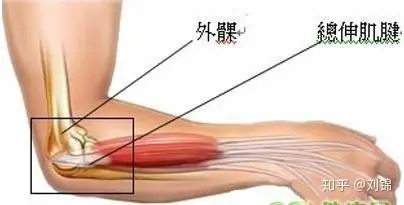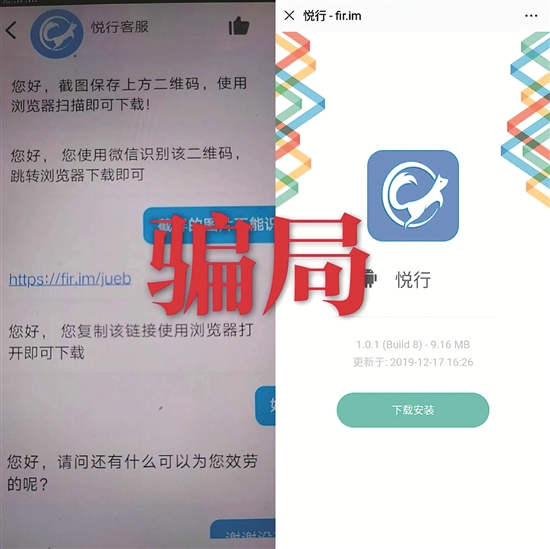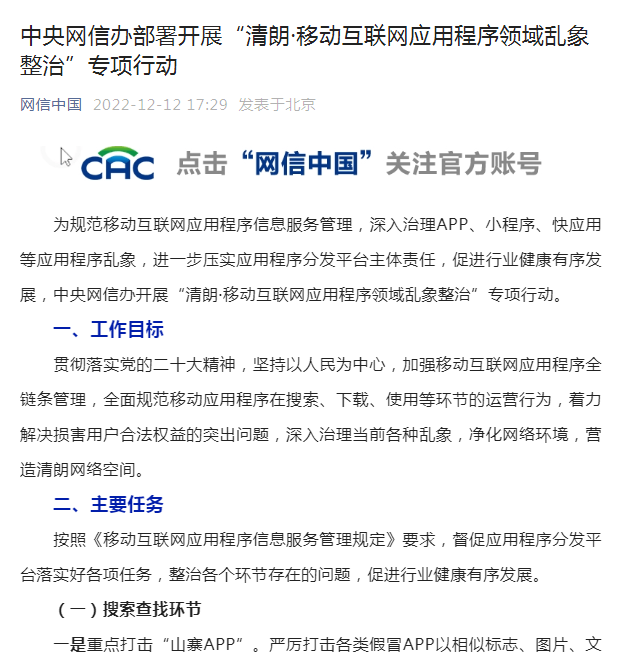罗先生语法9
3 在带有插入语的定语从句中who和whom的选用。
关系代词who/whom在其引导的定语从句中担任主语成分时用主格who,担任宾语成分时用宾格whom,这点很简单,但有时它们引导的定语从句带有插入语,而该插入语的前后也不用逗号隔开,因此不易区分它是定语从句中的插入语还是定语从句中的主谓结构;这时就产生用主格who还是用宾格whom这一困难。试比较:
Jason is a man who I believe is honest.
[分析]在定语从句who I believe is honest中,I believe是插入语,去掉该插入语剩下的便是Jason is a man who is honest,在语法及句意上都能成立,who是定语从句中动词is的主语,故用主格,不能用whom。
Jason is a man whom I believe (to be) honest.
[分析]在定语从句whom I believe (to be) honest中,如把I believe当作插入语而予以删掉的话,剩下的句子结构便成为Jason is a man whom (to be) honest,显然不合语法,因而I believe不是插入语,而是定语从句中的主谓结构,whom作believe的宾语,故不能用主格形式who;显然,(to be) honest是whom的宾语补语。
The girl who we supposed had run away from home came back.
[分析]we supposed是插入语,因去掉后,The girl who had run away from home came back仍成立,who是谓语had run away from home的主语,故不能用宾语形式whom。
The girl whom we supposed to have run away from home came back.
[分析]如把we supposed当作插入语予以删掉,剩下的句子结构The girl whom to have run away from home came back在语法上不能成立,故在这句中we supposed不是插入语而是定语从句的主谓成分,whom作supposed的宾语,因而不能用主格形式who,to have run away from home作whom的宾语补语。
例 Standing (A) by a fine model of Fujiyama was the boy whom (B) everyone thought (C) would be chosen the winner by (D) the judges.
[分析]B错,改为who,因定语从句中everyone thought是插入语,去掉后定语从句语法上仍然成立,who作would be chosen的主语。
4 whose在使用上必须注意的两点。
A. whose在它所引导的定语从句中起定语作用,它既可代表人又可代表物。
This is the house whose windows (=the windows of which或of which the windows) are all broken.
I know of a chemical compound(化合物)whose structure (=the structure of which) is the same as this.
B. whose在它所引导的定语从句中常和it连用,it起形式主语作用。
试比较下面两个例句:
A writer is a person whose duty is to write.[whose引导定语从句,主语duty为whose所修饰,不定式to write为表语]A writer is a person whose duty it is to write.[whose也是引导定语从句,it是形式主语,真正主语是不定式to write]
两个例句意思完全相同,只是结构不同而已,在实际应用中第二式比第一式更为常见。
例 “Did the audience participate in the play?”
“Yes, the actors_____to involve the audience were successful.”
A. whom it was the function
B. of which the function was
C. whose function it was
D. whose were the function
[分析]掌握了上述whose在其引导的定语从句中和it连用的这一结构后,便能轻易地选择了C这个正确答案。
例 It is uncommon to find an excellent researcher_____.
A. which is as well a very good teacher
B. what is a competent teacher as well
C. who is also a competent teacher
D. who teaches also very well
[分析]先行词researcher(研究员)是人,它的关系代词应是who或that,故选C。不选D的理由是,在句子中副词also的正常位置应在be的后面或实义动词之前,这里需把also放在实义动词teaches之前才对。
例 “Who is it?”
“This is the actress_____his father claims has seduced(勾引了)his son!”
A. who
B. whom
C. that
D. which
[分析]先行词actress(女演员)后面的关系代词可用who或that,但句中his father claims是插入语;在引导带有插入语的定语从句中,其先行词是人时,通常用who而不用that,故选A。
例 There are (A) many organizations which (B) sole purpose is (C) to help (D) mentally retarded children.
[分析]B错。在上题的定语从句中,主语是purpose,故关系代词应起定语作用,把which改为whose(whose也可用来指事物)。另一种改法则是of which the sole purpose或the sole purpose of which。
2. 关系代词who,whom,which和that的主要用法
1 which的先行词可以是一个句子。
which的先行词通常是一个名词,但有时候它的先行词可以是一个句子,即which有时候可以用来代表前面一个句子所表示的意思,这种用法很普遍,如:
George failed in the TOEFL examination, which shows he had not worked hard enough.[which指failed in the TOEFL examination]
Olaf lost his way, which delayed him considerably.[which指lost his way]
在上列两个例句中,which可用两个字来代替,即and that,也就是说,当which代表一个句子时,它所引导的定语从句可以变成一个独立的分句;以上两例可以改写如下:
⇒ George failed in the TOEFL examination, and that shows he had not worked hard enough.
⇒ Olaf lost his way, and that delayed him considerably.
2 先行词是一个集体名词时,which和who的选用。
当先行词是一个指人的集体名词时,如果着眼于该集体的整体,关系代词用which;如若要表示该集体中的各个成员,则用who。
The football team, which is playing very well, will most probably place first(得第一名)in the league matches(联赛).
The football team, who are having baths, will be back here for tea.
3 先行词前有最高级形容词、only、any或no时,关系代词的选用。
当先行词前有最高级形容词、only,any或no时关系代词用that,不用which。如:
Professor Smith is the best(最高级)mathematician that has ever visited our university.
Linda is the only person that understands me.
No sample that we have received is satisfactory.
Please send me any information that you have about the subject matter(题材).
4 在little,much,all,none,everything等词后面关系代词的选用。
在用作名词的little,much和代词all,everything,something,anything,nothing,none后面也宜用that:
All that glitters is not gold. 闪光发亮的并不都是金子。(莎翁名句)
[注:这一莎翁名句的原式是All is not gold that glitters.]
5 在everybody,somebody等词后面that和who/whom的选用。
在everybody,everyone,anybody,anyone,somebody,someone等词后面宜用who/whom:
When I entered, they were talking about somebody whom I didnt know.
Is there anyone here who knows Spanish?
如果先行词是who,便只能用that作为其关系代词,如:
Who that you have seen can do better? 你曾见过谁能做得更好?
6 前面有两个性质不同的先行词时,that和who/whom的选用。
遇到有两个先行词,一个指人,一个指物时,这时应用that:
Larry spoke highly of the actor and his performance that he saw at the theater.[that代表the actor and his performance]
The scholar and his achievement that the newspaper covered(报道)are greatly admired by the teachers and students alike.[that代表the scholar and his achievement]
7 关系代词that前面不能有介词,必须把介词移至句子末尾才正确。
Here is the book about that I told you.(×)
Here is the book that I told you about.(√)
Have you seen the film on that the newspaper comments?(×)
Have you seen the film that the newspaper comments on?(√)
▶▶ 但which和whom前面则可带有介词:
Here is the book about which I told you.
He is the man to whom the newspaper gave coverage(报道).
例 The seventeenth century was one in that (A) many significant advances (B) were made in (C) both (D) science and philosophy.
[分析]显然A错。that作为关系代词时前面不能有介词,把A改为in which (=in the seventeenth century)。
注:in that连用时变成一个连词,相当于for the reason that;because(因为;由于;在于);如:Men differ from brutes in that they can think and speak. 人不同于禽兽,在于人会思考、会说话。
8 whom和which与不定式及介词连用的结构。
关系代词whom和which还可和不定式连用,但前面需加介词,或省掉关系代词把介词移至句末,即“介词+whom/which+不定式”或“(whom/which省掉)不定式+介词”。如:
Hob is a pleasant young man with whom to work.
Hob is a pleasant young man to work with.[省掉whom,较口语化]
I have no money with which to buy a car.
I have no money to buy a car with.[省掉which,较口语化]
把上面每组例句进行比较即会发现,把介词移至句末需省去关系代词,不然就不合英语习惯,试再比较:
Bob has no money with which to buy books.[正式的书面英语]
Bob has no money which to buy books with.[×因介词移至句末时必须省去关系代词]
Bob has no money to buy books with.[√系口语化,在正式英语里也能成立]
What is the proper age at which to marry?[正式书面英语]
What is the proper age which to marry at?[×]
What is the proper age to marry at?[√口语]
例 That (A) is one of the many (B) tools which (C) I find it hard to work with (D).
[分析]在which I find it hard to work with的定语从句中,it是形式宾语,真正的宾语是不定式短语to work with,介词with置于句末应把关系代词which省略,故C错,删去即可。另一种改法是,把with移至which前,即with which I find it hard to work,但这种改法需牵动D和C两个部分,既不符合试题要求,语言也显得生硬、不自然。
3. 关系代词的省略
1 关系代词在其所引导的从句中作宾语时,可省略。
The man (whom) you saw there is head of our department.
Alan is a man who is strict with himself in everything (that) he does.
The tickets (which) you spoke of were sold out.
例 “What game is popular with them?”“The_____most is tennis.”
A. game they like it
B. best game they like
C. best game they like it
D. game they like
[分析]应选D。在The game (which) they like most is tennis这一题句中,which作like的宾语可省略。A中it系重复宾语,B中best和题句中的most字义重叠,也须删去。
2 关系代词在从句中作表语(又称主语补语)时,通常省略。
Isabels (=Isabel has) changed.She is no longer the girl (that) she was.
3 关系代词引导的从句修饰宾语补语并在其引导的从句中作表语时,通常省略。
Bills changed a lot. I wonder what has made him the man (that) he is.
4 关系代词在它引导的从句中作主语时则不能省略,但如果该从句带有there is这一结构时,作主语的关系代词宜省略。
注意,在这一结构中先行词前都须有the+最高级形容词来修饰。
Please show me the latest reference book (that) there is on this subject.
This is the fastest train (that) there is to Michigan.
4. 用于限制性定语从句和非限制性定语从句的关系代词
1 用于限制性定语从句的关系代词。
限制性定语从句与它所修饰的先行词在意义上有着不可分割的联系,它对先行词起着限制、确定的作用,因此限制性定语从句和先行词之间没有逗号,讲话时两者之间没有停顿,应一气呵成。能引导限制性定语从句的关系代词通常是who,whom,whose,that和which:
William Douglas is a man whose word is as good as his bond(一诺千金).
Johnny is one of the men whom I feel I can trust.
The student who fell sick yesterday is now well.
The novel which you lent me was very interesting.
Lu Xun was one of the greatest writers that China has ever had.
2 关系代词引导限制性定语从句时需注意的两个问题。
A. 一个句子含有两个不同层次的限制性定语从句时的处理。
在实际应用中,有时一个句子会含有两个不同层次的限制性定语从句。在这种情况下,引导第一个限制性定语从句的关系代词通常被省去,引导第二个限制性定语从句的关系代词,即使处于宾语地位,也不予省略,这两个限制性定语从句之间也不用连词and:
Is there anything(that被省略)you want that you have not?
[分析]第一个that被省略,其先行词是anything,第二个that虽在从句中作动词have的宾语,则不能省略。其先行词不是anything,而是anything (that) you want;这两个限制性定语从句不在同一层次上,故不用and连接。
Mr. Burson is the only dealer(that被省略)we know who gives good prices.
[分析]第一个被省略的that的先行词是dealer,第二个关系代词who的先行词则是the only dealer (that) we know;这两个限制性定语从句也不在同一层次上,故也不用and连接。
这种结构在书面及口头上都会碰到。据说基辛格博士初任美国国务卿职务时,曾派人到驻华盛顿的各国使馆征求意见,当时一位苏联使馆官员曾说“Dr.Kissinger is the only person(that被省略)we know who can eat caviar with chopsticks.”caviar(鱼子酱)指苏联,chopsticks(筷子)指中国,这句话的含义是,基辛格博士是唯一能妥善处理中、苏两国关系的人。这句英语原文也是带有两个不同层次的限制性定语从句。第一个关系代词that被省略,其先行词为person,第二个关系代词who的先行词为the only person (that) we know。两个从句之间,由于层次不同,也不用连词and。
B. 同一个先行词跟有两个并列的限制性定语从句时的处理。
同一个先行词,其后跟有两个并列的限制性定语从句时,引导它们的关系代词通常不能省略,两个从句必须用and连接:
This practice book is intended for foreign students of arts who have mastered the elements of English and who now want to use their knowledge of the language to read books on their own subjects.
3 用于非限制性定语从句的关系代词。
非限制性定语从句和它所修饰的先行词关系比较松散,它只是对先行词进行补充说明;因此,非限制性定语从句和先行词之间通常用逗号分开。除that只能引导限制性定语从句外,其余关系代词都能引导非限制性定语从句:
I told the secret to Freddy, who(不能用that)later told it to his girl friend.
That scientist, whose work is very important to the welfare of mankind, has been awarded a Nobel Prize.
Miss Smith, whom(不能用that)you met at our house, is going to marry Mr. Abbott.
The current, which(不能用that)is very rapid, makes the river dangerous.
从上述例句来看,非限制性定语从句前后均被逗号分开,故就其意义来说,非限制性定语从句往往相当于一个并列或独立的句子,因而以上四例也可这么写:
⇒ I told the secret to Freddy, and he later told it to his girl friend.
⇒ That scientists work is very important to the welfare of mankind. He has been awarded a Nobel Prize.
⇒ Miss Smith is going to marry Mr. Abbott. You met her at our house.
⇒ The current is very rapid. It makes the river dangerous.
例 Great Salt Lake is fed by freshwater streams, _____is about four to five times as salty as the ocean.
A. yet
B. which
C. there
D. that
[分析]应选B,which指Great Salt Lake,用来引导非限制性定语从句,前面有逗号隔开,which is about...=and it is about...,it也指Great Salt Lake。D不妥,因that不能引导非限制性定语从句。A项中yet后应补充it,充当主语。C不合语法。
which引导非限制性定语从句时,也可以指前面一个短语或从句所包括的意思,这时which和先行词之间只有意义上的联系而没有句法上的联系。如:
The decision was postponed, which was exactly what he wanted. 决议延期作出,这正是他所要求的。[which指The decision was postponed, which=and that]
Audrey said she had lost her watch, which was not true. 奥蕾说她的手表丢了,那不是真的。[which指she had lost her watch, which=and that]
例 Our friends are expected to assume the burden of their own defense, _____they are competent to do.
A. which we are certain
B. that we are certain of
C. of which we are sure
D. for which we are sure
[分析]应选A。which的先行词不是burden,而是不定式短语to assume the burden of their own defense,在它所引导的非限制性定语从句中which作不定式to do的宾语。that不能引导非限制性定语从句,be certain (sure)后面接从句时,不能再用介词,故B,C和D都错。
4 关系代词所引导的限制性定语从句和非限制性定语从句的比较。
这两种定语从句首先是意义不同,从而也造成结构上的不同。限制性定语从句是把主句和从句作为一个表意整体来考虑的,因而关系紧密,不用逗号分开,从句去掉则会造成原句句意的不完整。非限制定语从句是把主句和从句作为分开的表意单位来考虑的,因而关系松弛,通常用逗号隔开,从句去掉后,主句也能单独成立。关系代词引导的这两种定语从句在含义上也有差别。试比较:
Romola who has six children has never gone to college.[限制性定语从句]
生有六个儿女的萝莫拉从未上过大学。潜台词是:还有其他名叫萝莫拉的妇女,她或她们可能上过大学。
Romola, who has six children, has never gone to college.[非限制性定语从句]
萝莫拉有六个孩子,她从来未上过大学。潜台词是:只有一个名叫萝莫拉的妇女。
I have a sister who is in Taiwan.[限制性定语从句]
我有一个住在台湾的姐姐。潜台词是:我还有其他姐姐,她或她们住在别的地方。
I have a sister, who is in Taiwan.[非限制性定语从句]
我有一个姐姐,她住在台湾。潜台词是:我只有一个姐姐。
There were very few passengers that(或who)had escaped without serious injury.[限制性定语从句]
没有受重伤而逃出来的旅客很少。潜台词是:逃出来的旅客绝大多数都受重伤。
There were very few passengers, who(不能用that)had escaped without serious injury.[非限制性定语从句]
旅客很少,他们都逃出来了,没有受重伤。潜台词是:旅客的人数极少,没有其他旅客受到什么重伤。
▶▶ 有时候,定语从句的逗号用与不用会使句意大相径庭。例如:
His mother, who is a teacher, is 50 years old this year.[非限制性定语从句]
他的妈妈是个老师,今年50岁。
His mother who is a teacher is 50 years old this year.[限制性定语从句]
他那个做老师的妈妈今年50岁。(言外之意他还有做其他工作的妈妈。)
据说,好几十年前,一位英国的牧师忠于职守,与其教民关系甚为融洽;记者采访他时,为显示要与教民打成一片,该牧师表态平时不喜欢穿牧师服,并说,“I will wear no clothes which will distinguish me from my fellow-men.”(限制性定语从句),意为“我不愿意穿那种使我有别于我的同胞的衣服”,含意是他要与他的教民打成一片。
但当该牧师的话在报纸上转述时,在关系代词which前误加了一个逗号“,”。这样一来,原本的限制性定语从句顿时变成非限制性定语从句,即:“I will wear no clothes, which will distinguish me form my fellow-man.”一下子句意大相径庭,变成“我不喜欢穿衣服,宁愿赤身裸体,这样就可使我显得与我的同胞不同了。”
据传,见报当天,一片哗然,读者笑倒,牧师昏倒。
5 关系代词引导的限制性定语从句和非限制性定语从句的其他语法功能。
限制性定语从句和非限制性定语从句有时在一定的上下文中可起到状语从句作用,表示原因、目的、结果、条件、让步等:
The manager gave interviews to a few candidates, from among whom he wanted to choose one.[from among whom...相当于because he wanted to choose one...的意思,表示原因]
Solomon was diligent, responsible, and intelligent, for which he was promoted from a clerk to a manager.[for which...相当于so that he was promoted...的意思,表示结果]
He would be a bad businessman who merely did buying and selling without investigating market potentialities.[主句中的would be加上who merely did,再结合句意来看,可说相当于if he merely did buying and selling without...的意思,表示条件]
Many people who had few advantages in their youth have done great things for their country.[主句,对从句来说,在意思上是个转折,意同Many people, though they had few advantages in their youth, ...表让步]
I wish to write to the newspaper a letter of complaint that will attract public attention to the matter.[that will attract public attention...相当于so that(或that)it may attract public attention to the matter,表示结果]
上述关系代词引导的定语从句所显示的状语功能需视特定的语言环境而定。了解和掌握定语从句的这一特殊功能将有助于我们正确理解原文的含义。
6 关系代词和关系副词在用法上的区别。
除关系代词外,还有三个关系副词可用来引导定语从句。它们是when (=in/at/on which),表示时间;where (=in/at/on which),表示地点;why (=for which),表示原因。when和where可引导限制性及非限制性定语从句;why只能引导限制性定语从句:
I still remember the day when (=on which) you wore that beautiful pink dress.[限制性]
We shall put off the picnic till next week, when (=at which time) the weather may be fine.[非限制性]
This is the place where (=in which) a large dormitory will be built for the families of our teachers.[限制性]
We went to the Grand Theater, where we saw Ibsens A Dolls Family(《玩偶之家》).[非限制性]
There is no reason why (=for which) I should not accept the offer.[限制性]
▶▶ 关系副词在其所引导的定语从句中只能起状语作用,即它引导的从句主谓结构必须完整,如果谓语是及物动词的话,后面需有宾语。掌握这一点对实际应用和应试都很重要。以下是一些常见的病句及对各句的剖析:
例 Caruso came from a place where nobody knew.
[分析]where引导的定语从句中,动词knew系及物动词,缺宾语,where只能起副词作用,不能充当knew的宾语,故须把where改为关系代词which。
例 Lets go to the office in where he works.
[分析]where不能用作介词in的宾语,须把where改为which,即in which he works,或去掉in,成为where he works,where在此句里相当于in which。
例 That is the period in when Clifton lived here.
[分析]when也不能用作介词in的宾语,把when改为which,即in which Clifton lived或去掉in,when Clifton lived here等同于in which Clifton lived here。但when作为关系副词,有一个例外,即它有时可变作代词,通常可作介词since和until/till的宾语,如:I saw her a few months ago, since when (=since that time) I have not heard anything of her。
例 I never understood the reason why he did it for.
[分析]why这里也用作关系副词,不能作for的宾语,改为for which he did it或删掉for,成为why he did it。
例 Constructed (A) in Chicago in 1883, the Home Insurance Building was the first building in the world that (B) the floors and the exterior (C) masonry walls were supported (D) by a skeleton framework of metal.
[分析]B错。在关系代词that引导的定语从句“that the floors and the exterior masonry walls were supported by a skeleton framework of metal”中,主谓结构已完整,故该定语从句不能用that来引导,应改用关系副词where或in which。
例 There comes a time in every mans life_____.
A. then he has to think
B. which he needs
C. when he has to think
D. therefore he has to work hard
[分析]应选C,when系关系副词,在这里同at which,定语从句when he has to think修饰time,不是修饰life,该定语从句主谓结构已完整,故用关系副词when引导。
5. 关系代词as的用法
1 用于the same...as...,same as ...,such as ...,such...as...,so...as...和as...as...的结构中。
During our visit to Honolulu, we saw so great a Thanksgiving Day parade as nobody had ever dreamt of in our own city. 在我们访问檀香山期间,我们见到了在我们城市谁都不曾梦想过的一次盛大的感恩节游行。
You can buy as many copies of this book as you want. 这本书你要多少本就能买多少本。[第一个as是副词,第二个as是关系代词]
He is as great a calligrapher as ever lived.
=He is one of the greatest calligraphers that ever lived. 他是有史以来最伟大的书法家之一。
These apple are not such asI bought yesterday. 这些苹果不是我昨天买的那一种。
Such people as know Irene like her. 认识艾琳的人都喜欢她。
例 Jacques Yves Cousteau has estimated (A) that only (B) one third to one half as many fish and other forms of marine life live in (C) the oceans now that (D) lived there twenty years ago.
[分析]D错。关系代词that的先行词是fish and other forms of marine life。当先行词前面有as时,引导定语从句的关系代词应用as,即上面所说的as...as结构,故把D改为as。题意是“雅克•伊夫•库斯托已作出估计,20年前生活在海洋中的许多鱼类和其他海洋生物如今只有其中的三分之一到二分之一还存活着。”
2 用来代表主句所表达的意思。
as作为关系代词还可用来指代它前面或后面的主句所表达的意思。as可置于句首或句子后部,在它所引导的定语从句中必须承担一定的语法成分,即不是作主语就是作宾语:
As you will find out, I will never let you down(决不抛弃你/决不使你失望).
[分析]as指代I will never let you down,在它引导的定语从句中作find out的宾语。
As is announced in todays newspapers, there will be an earthquake of magnitude 4(4级地震)in the next few days.
[分析]as 代表there will be an earthquake of magnitude 4,在它引导的定语从句中作主语,故as后面不能再加上it。在“As is announced in...”中,is也可省略。
I usually take forty winks(小睡一会儿)after lunch, as is my habit.
[分析]as置于句子后部,在其引导的定语从句中作主语,as后面不能加上it。
Louisa is a bit out of her mind(有点神智失常), as all her acquaintances can see.
[分析]as代表Louisa is a bit out of her mind,在它所引导的定语从句中作动词see的宾语,故在see后不可再加上it。
His was a Japanese, as we perceived by his accent.(他是日本人,这是我们从他的口音中听出来的。)
[分析]perceived是及物动词,as充当其宾语,故perceived后不能加it。
▶▶ 注意,不要把用作关系代词的as和用作连词的as混淆起来。as用作关系代词时,只能代表一个句子,绝不能代表一个单词。如:
English as spoken in Australia is slightly different from British English.
[分析]as前面只有English一个单词,故as便不是关系代词而是连词,as spoken in Australia=as (it is) spoken in Australia,it指English。
又如Oxford as I see it(我所见到的牛津大学),as之前只有一个单词Oxford,故是连词,在它引导的从句中see是及物动词,后面的it代表Oxford作其宾语,不能省掉。
例 The telephone_____was the invention of Alexander Graham Bell.
A. as is known by us
B. as do we know it
C. as we know it
D. as we know
[分析]as前只有单词telephone,不能用作关系代词,而应作连词用,故正确的选择应是C。如果把上题中的as从句置于句首或句末,这时as便指主句所表达的意思,变成代词,作know的宾语,我们就该选D,即:As we know, the telephone was the invention of Alexander Graham Bell。(或:The telephone was the invention of Alexander Graham Bell, as we know.)
3 as和which用来指代主句所表达的内容时用法上的区别。
as和which作为关系代词,都能代替主句所表达的意思,区别是:which通常指前面提到的情况或内容,即which引导的非限制性定语从句只能放在主句后面。as既可指前面已经提到的,也可指后面将提到的内容,有“为人所熟知,显然”的含义;as后面出现be+过去分词结构时,be也可省略。比较:
As(不用which)is known to us all, Cambridge University is one of the most famous institutions of higher learning in the world. 众所周知,剑桥大学是世界最著名的高等学府之一。
More American troops are being sent to the Middle East, as/which I have learnt from the newspaper. 更多的美国部队在被派往中东地区,这是我从报纸上获悉的。
The structure is very complicated, as(不用which,is省略)shown in the figure. 如图所示,这个结构非常复杂。
As(不用which)a poet points out, life is but a dream. 正如一位诗人指出的那样,生活只不过是一场梦。[but用作副词,=only]
4 as作为代词引导的一些常见结构。
as is well known/as is known to all 众所周知
as is often the case 情况常常如此
as may be imagined 可以想象
as often happens 这种情况常常发生
as has been said before 如前所述
as is usual with sb. 某人经常如此
as is natural 很自然
as is supposed/expected/anticipated 恰如所料
as will be shown in... 将在……中指出
6. 关系代词but的用法
1 but用作关系代词时,作“who/that...not...”或“which...not...”解,用在否定结构后面。
There is no rule(否定)but has exceptions. 没有一条规则没有例外。(即条条规则都有例外。)
=There is no rule that does not have exceptions.(即同:Every rule has exceptions.)
There is no one here(否定)but has applied for a scholarship. 这里人人申请过奖学金。
=There is no one here who has not applied for a scholarship.(即同:Everyone here has applied for a scholarship.)
▶▶ but这一结构通过双重否定以达到强烈肯定的修辞效果。我们就可用这一结构来英译这一汉语句子“没有人不同情这么多海啸受难者。”⇒“There is no man but feels pity for the numerous tsunami victims.”
2 but前的否定结构往往采用省略形式。
No rule but has exceptions.
No one here but has applied for a scholarship.
例 There is (A) no work (B) whatever what (C) he can (D) criticize.
[分析]句中whatever作副词,作“一点……也(at all)”解,用在疑问句或否定句里。题句中第一部分=There is no work at all,系否定结构,故C错,应改为but。There is no work whatever but he can criticize.=There is no work whatever (=There is no work at all) that he can not criticize.双重否定表示强烈肯定。
例 There are very few rules of grammar_____.
A. that are not with exceptions
B. but have exceptions
C. not having exception to them
D. not with exception to them
[分析]选B,句子前部属否定结构,but这里作“that/which...not...”解;but have exceptions等同于that do not have exceptions。
十、连接代词
关系代词who,whom,whose和which也可用作连接代词;除这些词外,还有what这一连接代词。
1. 连接代词和关系代词的异同
1 表现在先行词上。
关系代词前面必须有一个先行词,关系代词引导的定语从句是用来修饰它的先行词的:
Bobby is the pleasantest colleague that I have ever worked with.
[分析]关系代词that引导的定语从句修饰其先行词colleague,如果删去该先行词,例句的结构便不完整,成为病句。
▶▶ 连接代词则没有先行词,如:
We dont know whom we should turn to for help.
[分析]这里的whom用作连接代词,作“the person whom”解,字义中已含有先行词“person”,故whom前不能再有先行词。
2 表现在语法功能上。
关系代词只能引导定语从句,在定语从句中作句子中某一成分。连接代词引导的不是定语从句,而是主语从句、宾语从句和表语从句,在从句中也是作某一成分,即主语、宾语、定语或表语。如:
A. 引导主语从句。
Who will preside over the meeting is still unknown. 谁主持会议仍不得而知。[在从句中作主语]
What my future will be like is still uncertain. 我的前途如何仍是个未知数。[What充当介词like的宾语在从句中与like一起用作表语]
Which is cause and which is effect(何者为因,何者为果)need not be argued(不需辩论,即不辩自明).[在从句中作主语]
B. 引导宾语从句。
I went to him for help, and he gave me what money he had(把仅有的钱都给了我).[在从句中作定语,what money he had=all the money that he had]
You know who he is and what he is(他是干什么的).[在从句中都作表语]
This brings us to(使我们面临)the problem of what is to be done(该怎么办).[在从句中作主语]
C. 引导表语从句。
The important thing is what a man does, not what he says.[在从句中作宾语]
Joesphine is not who she seemed to be(现在不像她本来的样子).[在从句中也作表语]
从上面例句中可以看出,连接代词具有双重语法功能:① 引导从句(主语从句、宾语从句或表语从句),② 在所引导的从句中作句子成分(主语、宾语、定语或表语)。在实际应用中,连接代词who的格则取决于它的第二语法功能,即看它在所引导的从句中作什么成分而决定用who,whom,whose。如:
Do you know who broke the glass?
[分析]动词know的宾语不是who,而是宾语从句who broke the glass,who在其引导的从句中作主语成分,故用who,不能用whom。
Whom you choose as your tutor(导师)matters a lot to you(对你关系很大).
[分析]whom引导主语从句,但在其引导的主语从句中作choose的宾语,故用whom。
Do you know whose dictionary it is?
[分析]连接代词whose引导一个宾语从句,在从句中whose作定语修饰dictionary,故用属格whose。
例 Because they usually receive the same score on standardized examinations, there is often disagreement as to_____is the better student, Bob or Helen.
A. who
B. which
C. whom
D. whose
[分析]题中介词as to的宾语是who引导的宾语从句(who is the better student, Bob or Helen),在该从句中who起主语作用,故应选A。
例 If you had told us earlier_____he was, we could have introduced him at the meeting.
A. who
B. which
C. whom
D. whoever
[分析]也应选A (who),因在who引导的宾语从句中,主语是he,who作表语,即主语补语,需用主格。
2. 连接代词和疑问代词的转化
1 连接代词转化为疑问代词时的语序问题。
连接代词用在直接的特殊疑问句中便称为疑问代词(Interrogative Pronoun),通常采用主谓倒装的疑问句形式,但当疑问代词用作主语或用作定语修饰主语时,主谓便不倒置。
A. 用作主语(主谓不倒置)。
Who is to take up the job? 谁来承担这一项工作?
Whose is more practical? 谁的更实用些?
What happened next? 后来怎么样?
Which is yours? 哪个是你的?
B. 用作宾语(主谓倒置)。
What do you mean? 你这是什么意思?
Which do you want? 你要哪一个?
Whose are you going to borrow? 你准备借谁的?
With whom did you go? 你和谁一起去的?
▶▶ 注意,whom用作介词宾语时,如果介词移至句末,whom则改用主格,在口语体中尤其如此。如:
To whom do you wish to speak?
Who do you wish to speak to?
About whom are you talking?
Who are you talking about?
C. 用作表语(主谓倒置)。
Who are those men? 那些人是谁?
What is your mother? 你妈妈是干什么的?
Mary and Susan are twins(双胞胎)and which is which(谁是谁), can you tell me?[第二个which用作主语,但第一个which用作表语,故主谓仍需倒装]
Whose is it? 这是谁的?
D. 用作定语(修饰表语或宾语,主谓倒置)。
Whose parasol is this? 这是谁的阳伞?
At which station should I change trains? 我应在哪个火车站换车?
What harm does it do after all? 这究竟有什么害处呢?
E. 用作定语(修饰主语,主谓不倒置)。
What books are in your bag? 你书包里有什么书?
Which train will leave for Beijing? 哪趟火车是开往北京的?
Whose bicycle was stolen last night? 昨晚谁的自行车被偷了?
▶▶ 注意what和which在应用时含义上的区别。what指不定数目或范围中的“什么”,which指一定数目或范围中的“什么”。如:
What fruit do you like best? 你最喜欢什么水果?
Which do you like better, pears or apples? 梨和苹果你更喜欢哪一个?
What book is he reading? 他在读什么书?
Which book is he reading?(这几本书中间)他在读哪一本书?
例 One important aspect of the controversy of abortion (A) is whether a woman (B) should be permitted by law to have an (C) abortion and, if so, under which (D) circumstances.
[分析]乍看之下,我们会认为不是A错便是C错,但实际上A和C都对,因abortion(人工流产)可用作不可数名词和可数名词。
这句话意为“关于人工流产争论的一个重要方面是,法律是否该允许妇女进行人工流产;如果允许的话,该在什么样的情况下进行人工流产。”显然,题句并未说明在一定的或限定的情况下允许妇女进行人工流产,即无范围限制,因而不能用which,故D错,需改为what。
▶▶ 但当特殊疑问句中含有do (did) you think (suppose, say, suggest, know)等插入语时,疑问代词或疑问副词不论在句中作什么成分主谓一概不倒置,即:
What do you think I ought to see first? 你认为我应该先看什么?
How long did she say she would stay here? 她说她要在这里待多久?
When do you know they will be back? 你知道他们什么时候回来?
Where do you suggest we should go during the summer holidays? 你建议我们暑假去哪里?
例 Theres a police car in front of our neighbors house. What do you suppose_____?
A. is happened
B. has happened
C. would happen
D. did happen
[分析]题中do you suppose是插入语,应选B。A错,因happen是不及物动词,不能用于被动语态。C和D不合时态。
2 疑问代词转化为连接代词时的语序问题。
然而,当特殊疑问句充当另一句中的主语、宾语或表语时,该特殊疑问句就成为间接疑问句。在间接疑问句中,一律采用主谓不倒置的陈述句语序,这时疑问代词也就转化为连接代词。这儿也顺便说明一下,疑问副词when,where,how,why在它们引导的间接疑问句中也转化为连接副词,语序也由主谓倒置的疑问句形式改为主谓不倒置的陈述句模式。试比较:
What are they after? 他们追求的是什么?[what是直接疑问句中的疑问词,主谓倒置]
What they are after is profit.[what在其中的疑问句中引导主语从句,变成间接疑问句,主谓不倒置,what充当主语,也由疑问词变成连接代词]
At which station should I change trains?[直接疑问句,主谓倒置]
Could you tell me at which station I should change trains?[充当宾语从句,主谓不倒置]
Whose parasol is it?[主谓倒置]
Do you know whose parasol it is?[主谓不倒置,因充当宾语从句,成为间接疑问句]
Where is the booking office(售票处)?[主谓倒置]
Could you tell me where the booking office is?[间接疑问句,主谓不倒置]
How can we raise our efficiency?[主谓倒置]
Lets see how we can raise our efficiency.[间接疑问句,主谓不倒置]
由连接代词或连接副词所引导的间接疑问句的语序是一个在讲、写和测试中经常碰到的问题,需牢牢掌握。
例 Botanists are not sure where the first plant was grown or even_____.
A. what plant was
B. it was what plant
C. what plant was it
D. what plant it was
[分析]应选D,在上题中what plant it was系间接疑问句,须用主谓不倒置的陈述句语序。
例 It is not known exactly when (A) the first immigrants arrived (B) in the New World, but where did that event occur (C) is certain (D).
[分析]C错。在but引导的并列句中,连接副词where引导的疑问句充当主语从句,成为间接疑问句,也须用陈述句语序,主谓不能倒置,故把C改为where that event occurred。
3. 连接代词的合成词
1 连接代词的合成。
who,whom,what,which同-ever构成合成连接代词,相当于anyone who或anything that等。它们所指的对象是不确定的,在现代英语中用得很普遍。这些合成代词可以引导主语从句和宾语从句,并在所引导的从句中作主语、宾语或定语,也就是说,它们具双重语法功能。如:
A. whoever,whomever
Whoever breaks the law (=Anyone who breaks the law) shall be punished.[引导主语从句,在从句中作主语]
Women should enjoy complete freedom to marry whomever they might desire (=anyone whom they might desire).[引导宾语从句,在从句中作desire的宾语]
B. whichever
All the samples are here. You can take whichever you like (=any sample you like).[引导宾语从句,在从句中作like的宾语]
Ill buy whichever (=anything that) is cheapest.[引导宾语从句,在从句中作主语]
C. whatever
We give the decorator a free hand in doing our apartment over(让装潢的人放手重新装修我们的公寓). He may do whatever he likes (=anything that he likes).[引导宾语从句,在从句中作likes的宾语]
Rick is outspoken(心直口快). Hell just say whatever comes into his head(想到什么就说什么).[引导宾语从句,在从句中作主语]
例 Free theater tickets will be sent to_____phones us first.
A. whomever
B. whosoever
C. whoever
D. forever
[分析]根据上文所说,合成代词的第一功能是引导从句,第二功能是在其所引导的从句中必须起到一个句子成分的作用,不是作主语就是作宾语或定语。此题中介词to的宾语是一个从句,该从句已具备动宾结构(phones us),而缺主语,故应选C whoever。
从上题中也可看出,合成代词whoever/whomever同连接代词who/whom一样,应视该合成代词在它引导的从句中所作的句子成分而决定用主格形式whoever还是宾格形式whomever。
2 whatever,whichever,who(m)ever含义上的区别。
whatever和whichever在含义上的区别犹如what和which的区别。whatever指不定数目中的不论什么(用于物),who(m)ever指不定数目中的不论谁(用于人),两词均用于不限定的范围;whichever指一定数目中的不论什么(用于人、物均可),用于限定的范围内。试比较:
Whoever comes will be welcome. 谁来都会受到欢迎。[用于不限定的范围,指人]
Ask whomever you like. 问一下你喜欢的任何人。[用于不限定的范围,指人]
Whatever he does he does well. 不论干什么,他总是干得很好。[表示不限定的范围,指事物]
One should stick to whatever one has begun. 不论着手做什么,都应锲而不舍。[表示不限定的范围,指事物]
Whichever of you comes in first in the hundred-meter dash(在百米赛跑中得第一名)will receive a prize.[指of you中的不论谁,范围限定,用于人]
All the magazines are here. You can borrow whichever you want. 所有的杂志都在这里。你想借哪一本就借哪一本。[指这里所有杂志中的随便哪一本,范围限定,用于物]
例 “Is there any particular dessert you would like to have?”
“_____you select is all right with me.”
A. Whatever
B. One
C. Why
D. Whichever
[分析]题句的含义是表示一个在一定范围内的选择,故应选D (Whichever),而不能选A (Whatever)。
4. 连接代词what的用法
what在应用及应试中出现率很高,用法也较复杂,故专列一项加以说明。
1 what既可用于物,又可用于人。
用于物时同the thing(s) which/that,用于人时同the person that。如:
Thank you for the gift. This is exactly what I want.[用于物]
I like Durkin. He never pretends to be what he isnt. 我喜欢德金。他从不装模作样。[用于人]
上列的定义和例子说明what的含义已包括先行词,它前面已不能再带有先行词,因而不能说This is the book what I want,但可以说This is the book that(或which)I want或This is what I want,换句话说,前面有先行词时,则按情况用that, which或who;无先行词时,必须用what。
例 Any meat what (A) has been preserved (B) by drying (C) is called (D)“jerky”.
[分析]A错。因前面已有先行词meat,需把what改为that。注意,先行词meat为any所修饰,先行词前有only,any或no时,不管指人或事物一律用that而不用which或who。
例 Gail Sheehys“Passage,”what (A) discusses (B) the continuing (C) psychological development of normal adults, is a most (D) profound and important book.
[分析]A错,改为which,但不能用that,因所引导的是一个非限制性的定语从句。
2 what在其引导的从句中还可用作定语。
代词what在它所引导的主语从句、宾语从句或表语从句中除作主语、宾语或表语外,还可作定语。如:
My uncle deposits what money (=all the money that) he saves in a bank. 我叔父把他所积攒的钱全存入银行中了。
Dont worry. I will give you what help (=any help that或as much help as) I can. 别担心,我会尽我所能帮助你。
例 The main facts in human life are five: birth, food, sleep, love and death. One could increase the number — breathing for instance — but these five are the most obvious. Let us briefly ask ourselves_____our lives.
A. they play in what part
B. they play what part in
C. what part they play in
D. in what part they play
[分析]应选C。注意上题中,One could increase the number后面省略了of the main facts。在what part they play in our lives这一宾语从句中,what作定语,what part置于从句句首,in our lives作状语修饰play。D中介词in的位置不当。B中what part应置于they play之前。A不合语法。
▶▶ what在从句中作定语用时,还可以和few,little连用,修饰名词,有时也可省去few,little,表示“尽管不多但已是全部……”的意思:
I will lend you what few reference books (=all the few reference books that) I can spare. 我愿把我现在不用的为数不多的参考书全部借给你。
We contributed what little money (=all the little money that) we had towards the earthquake-stricken area. 我们把仅有的为数不多的钱全捐献给了地震灾区。
▶▶ 有时介词可以放what前,也可以放在句末。如:
What did you do it for?=For what did you do it? (For what=Why)
但在以下短语中,介词放what之前,属固定搭配:
By what means did they get there?(凭什么方法)
In what circumstances will they give up?(在什么情况下)
In what respect are their measures better?(在哪方面)
At what time did he buy such a large house?(在什么时候)
In what way will you solve the problem?(用什么方式)
3 what作连接代词时的两个特殊结构。
A. what作连接代词用时可用来表示比喻,即A is to B what X is to Y。
其中A、B是主体,X、Y是喻体,相当于汉语的“A对于B犹如(就如,正如)X对于Y一样”。例如:
Intellect is to the mind what sight is to the body. 智力对于思想,犹如视力对于身体一样。
Parks are to the city what lungs are to the body. 公园对于都市正如肺对于人的身体一样。
在上列结构中what也可换用as,意思不变:
⇒ Intellect is to the mind as sight is to the body.
⇒ Parks are to the city as lungs are to the body.
例 Reading is to the mind_____food is to the body.
A. what
B. that
C. which
D. of which
[分析]显然应选A,句意是“读书对于思想犹如食物对于身体一样。”
B. what is called, what we call, what they call 等表示“所谓的”。
This is what is called“market economy”. 这就是所谓的市场经济。
It is what you call a“new fashion”. 这就是你所谓的“新潮”。
Some of what we call great books are written in blood and tears. 有些我们所称的巨著都是用血泪写成的。
C. what作为连接代词通常用于引导插入语结构。
其句型是:what is (was)+比较级形容词。在这一结构中what泛指下文所讲的话,作“而且;更……;更有甚者”解:
Tom participated and, what is more surprising(尤其使人惊讶的是),won first prize.
I have the document and, what is more(而且),I mean to keep it.
Eddie is clever and, what is better still(而且),very diligent.
What was worse(更糟的是), my father lost all his money in the business.
4 what的合成词whatever作副词用时的搭配。
what的合成词whatever常和no,not,any,anything,nothing等并用在疑问句或否定句里,起副词作用,作“一点也……(at all)”解:
There is no doubt whatever. 毫无疑问。
Is there any hope whatever? 有点希望吗?
I know nothing of her whatever. 关于她我一点也不知道。
▶▶ 需要注意的是,whatsoever也可这么用,但太正式,在现代英语里已极少用。故两词如同时出现在同一选择题时,应选whatever。
例 “What do you think about Larry?”
“He has no sense_____.”他一点头脑也没有。
A. what
B. nevertheless
C. whatsoever
D. whatever
[分析]如果选择中没有whatever,可选C,但现在须选D,因whatsoever已远远不如whatever那么常用。
5 what的常用习语。
and what not 其他;等等
Mr. Parker sends me regularly some books, magazines, newspapers, pictorials and what not. 派克先生定期给我送来一些书籍、杂志、报纸、画报等等。
give sb. what for 严斥(某人);痛打(某人)
My father got angry with my little brother for playing truant and gave him what for. 我父亲对我弟弟逃学动了肝火,把他打了一顿。
guess what 告诉你一个消息
Guess what! The boss is getting married! 告诉你一个好消息!老板快结婚了!
Ill tell you what 我有一个主意;我告诉你怎么办
Ill tell you what: lets hide the money! 我有个主意:咱们把钱藏起来吧。
know whats what 内行;有判断力
When it comes to statistics, he knows whats what. 谈到统计学,他是内行。
Our manager will make a sensible decision; he knows whats what. 我们经理将作出一个明智的决定,他很有判断力。
know what ones about 有头脑;会处理困难局面
Theres no need to worry about your son. He knows what hes about. 不必为你儿子担心,他很有头脑。
Its a difficult task, but he knows what hes about. 这是个艰巨的任务,但他能处理。
or what 还是别的什么
Mr. Clinton is angry with me. I dont know whether Ive offended him or what. 克林顿先生在生我的气,我不知道哪里得罪了他还是别的什么。
so what 那又怎么样
A: He doesnt like you. 他可不喜欢你。
B: So what?(不喜欢我)那又怎么样?
what about=how about ……怎么样?
What about staying here till Sunday and leaving for San Jose next Monday? 我们在这里待到星期天,下星期一再去圣何塞,你看怎么样?
what...do with... 处置;度过(时间等)
What shall we do with the back numbers of those magazines? 我们怎样处理那些过期的杂志?
What did you do with yourself during the winter holidays? 你寒假是怎样度过的?
what for或what...for 干吗;做什么用
“Im going to Moscow.”“What for(干什么)?”
What did you do that for? 干吗干那事?
Whats this for? 这做什么用?
what have you=and what not等等
If you want pencils, paper, reference books or what have you, please let me know. 如需要铅笔、纸张、参考书或其他什么东西,请告诉我好了。
what if... 如果……怎么办;要是……如何?
What if he finds out that you have lost his thesis? 如果他发现你弄丢了他的论文,那怎么办?
whats what 具体情况;真相
It wont take you long to learn whats what in this job. 要不了多久,你就能了解这项工作中的具体情况。
Hell show you whats what in time. 他会及时把事情的真相告诉你的。
what of it 那又有什么关系;那又怎么样?
A: Im afraid you have offended him(冒犯了他).
B: Well, what of it(那又怎么样呢)?
what with...and (what with) ……一则因……,一则因……;由于……种种原因
What with its inferior equipment and what with its outdated technique, the factory eventually closed down. 一方面由于设备差,一方面由于技术落后,该工厂终于倒闭了。
What with one thing and another, I cant come to you this Sunday. 由于种种原因,这个星期天我不能来你这儿了。
十一、不定代词
不定代词有all, both, each, every (-thing, -body, -one), nothing, nobody, no one, none, either, neither, other, another, one, many, much, some, no, enough等,其中一部分拟在一致性中讲述。
多数不定代词都能作主语、宾语、表语或定语,但none以及some, any, no, every的合成代词(如someone, nobody等)只能作主语、宾语或表语,而every和no只能作定语。这里就实际应用中较为常见的不定代词加以论述。
1. both,all
1 both和all用法上的区别。
both用于两者,all用于三者及三者以上。故后面均跟复数名词,动词也采用复数形式:
A. 用作主语。
Both of us are fond of music.
All of us are fond of music.
B. 用作宾语。
Ill take both of the books with me.
Ill take all of the books with me.
C. 用作定语[注意the只可用在both和all后面,不能用在它们前面]。
Both (the) girls are out.
All (the) girls are out.
D. 用作同位语[位置在verb to be之后或实义动词之前]。
在be后面
Juan and Adams are both to blame.
Juan, Mike and Adams are all to blame.
在实义动词之前
Juan and Adams both agreed to cooperate.
Juan, Mike and Adams all agreed to cooperate.
2 在实际应用和应对考试时需注意的问题。
A. both和alike连用的问题。
both和alike一起用,这是个常见的错误,因alike等同于like one another,已含有“相互(both)”的意思:
(×)Bill and Freddy are both very much alike.
(√)Bill and Freddy are very much alike.[删去both]
B. both和as well as连用的问题。
both可和and连用构成关联连词,但不能和as well as一起用:
(×)Eleanor knows both French as well as Spanish.
(√)Eleanor knows French as well as Spanish.
(√)Eleanor knows both French and Spanish.
C. both不能和two,together或each other连用。
(×)The two girls are both equally intelligent.[删去both]
(×)They both appeared together.[删去both]
(×)Both of them point a finger at each other. 他们俩相互指责。[删去both,改为They point a finger at each other.]
D. both...and...后所接的单词或短语在语法结构上须一致,即须采用平行或排比结构。
Both his hands and feet were hurt.(×,不平行)
Both his hands and his feet were hurt.(√,平行)
Both in Beijing and Shanghai.(×,不平行)
Both in Beijing and in Shanghai.(√,平行)
In both Beijing and Shanghai.(√,平行)
He enjoys a high reputation both at home and abroad.[√,at home是介词短语,abroad是副词,结构上看似不平行,但两者都用作状语,语法功能相同,也作为平行结构来处理]
E. both的几个习语。
both of a hair 彼此一样
The two guys are scoundrels, both of a hair. 这两个家伙都是坏东西,是一路货色。
both sides of the medal 问题的两方面;事情的正反两面
The person on the spot often has less chance of seeing both sides of the medal than the person at a distance. 当事人看问题往往不如旁观者看得全面。
It is sensible to take both sides of the medal into account. 看问题要同时考虑正反两面才是明智的。
good for both sides 两全其美
I think his suggestion is, indeed, good for both sides. 我认为他的建议是两全其美的。
F. both和all都强调整体,如要说明其中每一个,按习惯用法,应用each。
I sent a letter to both (or: all) of them. 意为:写了一封信给他们两个人(或所有的人)。
I sent a letter to each of them. 意为:给他们每一个人写了一封信。
3 代词all的用法。
A. all用作形容词表示总括性的意思时接复数名词。
表示“包括全体中的每一个或每一类”即“一切的;所有的”这一具有总括性的意思时,all接复数名词。
All dogs are faithful animals.
All men are equal. 凡人皆平等。
We must defend our country at all costs. 我们必须不惜一切代价保卫我们的国家。
Rescue ships looked for the missing boat in all directions. 救生船四处寻找那条失踪的船。
B. all作形容词,表示整体或集体概念时后接单数名词。
all Europe 整个欧洲
all day 整天
all the world 全世界
all night 整夜
all ones life 整个一生;一辈子
all week 整个星期
all morning 整个上午
例 All (A) village tribe of the North American Indian confederacy(联盟)had its annual (B) green corn dance, a festival (C) in which socialties (D) were renewed.
[分析]句意表示的是“北美印第安人联盟中的每一个村庄部落”,着重的不是总括性而是个体性,而且句中出现单数物主代词its,可见all是错的,应把A改为every。
C. all作形容词表示“any”或“the greatest possible”时,all通常接单数名词。
As the task was urgent, we worked with all speed (=with the greatest possible speed). 因任务紧急,我们以尽可能快的速度工作。
We welcome all criticism (=any criticism) of our work. 欢迎对我们的工作提出任何批评。
D. all作形容词用在否定句里,表示“一点也没有”时,接单数名词。
The authenticity of the news is beyond all doubt. 这则消息的可靠性是不容怀疑的。[beyond all doubt=beyond any doubt]
That his conclusion is correct is past all dispute. 他的结论是正确的,这一点无可争辩。[past all dispute=past any dispute]
E. all用作形容词时三个常见的搭配。
• of all+复数名词
系习惯表达法,相当于汉语“偏偏”的意思:
He disappeared on his wedding day of all days. 他偏偏在他结婚的那天失踪。
Why ask him, of all people? 干吗偏偏问他?
Well, of all things! 唔,万万想不到!
• almost+all
almost和all常搭配使用,但most和all则不能连用,这是一个较为常见的错。
例 Buying (A) the textbooks for his course, paying his tuition, and renting a locker took most (B) all the money he had (C) saved from (D) his summer job.
[分析]B错,把most改为almost,便可和all连用。
注:tuition[tjui∫n] n. 学费 locker[lɔkə] n. 寄物柜
例 I like eating in the cafeteria. I like_____food.
A. almost all the
B. the most of
C. nearly all of
D. almost of the
[分析]应选A。C需在of后另加the,即nearly all of the food,但不及almost all of the food普通。B和D均不合语法。
• for(或with)+all+ones表示“尽管……”
For all their opposition, I will go my own way. 不管他们怎么反对,我仍走自己的路。
With all his wealth, he is not happy. 尽管他十分富有,他并不幸福。
F. all作代词意指“the whole number, quantity or amount (of)”时,可用于单复数场合。
a. 复数场合。
All of the people are in favor of the plan.[代词all用作主语]
They all went together.[all用作复数主语they的同位语]
b. 单数场合。
All of the information is outdated.
All of the wine is spilt(泼翻了).
The child ate all of the cake.
注意:上面五例中单数及复数名词前的定冠词the不能省去,all of后面宾语的数决定谓语动词的数。
c. 代词all单独使用时后面动词数的问题。
① 作“all people”解时,接复数动词:
All are agreed. 大家一致同意。
All are silent. 大家都不吭声。
All were saved except a sick old man. 除一个生病的老人外,所有的人都被救出来了。
All that live must die. 生者必有死。
② 作“everything”解时,接单数动词:
All was silent. 万籁俱寂。
All is over. 一切都过去了。
All is well. 一切都好/一切顺利。
G. 代词all在句中的正确位置。
all的正常位置应放在be动词后面或放在实义动词前面。如要强化all的意思,可用all of us代替all,句中的位置同all。
All were covered with flakes of snow(雪片,雪花).
All of us were covered with flakes of snow.
We were all covered with flakes of snow.
We were all of us covered with flakes of snow.
试比较下列的all结构:
all dictionaries(√)[泛指一切辞典]
all such dictionaries(√)[指所有这样的辞典]
all these dictionaries(√)[英式英语]
all those dictionaries(√)[英式英语]
all his/my dictionaries(√)[英式英语]
all of dictionaries(×)[无此结构,应在dictionaries前加上the]
all of such dictionaries(×)[应去掉of(such代替of时便需去掉of)]
all of these dictionaries(√)[美式英语]
all of those dictionaries(√)[美式英语]
all of his/my dictionaries(√)[美式英语]
注:all有时后面可跟两个同位语,例如:
All we students like music.
H. 代词all与物主代词的连用。
代词all可用于物主代词后面,起名词作用,意指“所有的一切”:
Professor Maxwell gave his all to the university where he taught. 麦斯威尔教授把一切都献给了他执教的那所大学。
Mr. Block lost his all in the fire. 布拉克先生在那场火灾中失去了一切。
表示这一意义时,all和单数动词连用:
This is my little all. 这是我的全部所有。
I. all用作副词时数的问题。
all也可作副词,这时可用于单数主语后面:
I am all (=completely) in favor of your suggestion.
Michael is all (=entirely) wrong in his conjecture(猜测).
4 both,all,every和not连用时所表示的否定意义。
both,all,every和not连用时所表示的是部分否定(partial negation),不是全部否定(whole negation):
Both brothers are not here.
Both of the brothers are not here.
The brothers are both not here.
▶▶ 上列三例意指部分否定,作“两兄弟不都在这里”解,即“一个在,一个不在”。如要全部否定,则用neither,neither表示对两者都否定:
Neither brother(或Neither of the brothers)is here.
Life is not all cakes and ales. 人生并不就是吃喝玩乐。
All my friends do not smoke. 我的朋友并不个个都吸烟。
All men can not be artists. 不是所有的人都能成为艺术家的。
Everything he said was not correct. 他所说的话不是每句都正确的。
▶▶ 以上三个例句通常是用下列的方式来表达的;这样,部分否定的意思就很明显:
Not all my friends smoke.
Not all men can be artists.
Not everything he said was correct.
▶▶ 如果改成全部否定,则用none,none表示三者或三者以上的全部否定:
None of my friends smoke.
None can be artists.
None of what he said was correct.
掌握上述表示部分否定的结构不仅有助于我们正确理解句意,而且在对外交往中还可避免不必要的误解。据说多年前某外贸公司的一位外销员收到英国一家公司的来信,要求推销他们的产品,那时恰逢该外贸公司无进口额度,故该外销员把来信往抽屉一放了事。不久,英国公司来信催复,该外销员原来的复文是:We regret we are not interested in your products. 但为了强调起见,原来的复文中再加上all一字,即We are not interested in all your products。这样一来,反而弄巧成拙,因not和all连用构成部分否定的含义,复文的意思便变成“很抱歉,我们对你们的产品不是都感兴趣的。”英国公司立即抓住这一语言上的漏洞来信说“Then how about those products you are interested in?”使该外销员陷入尴尬的局面。莎士比亚也曾运用这一部分否定结构讲了一句富于哲理性的名言:All is not gold that glitters. 这句话是“All that glitters is not gold”的强势式,句子表示了一个部分否定含义,即“闪光发亮的不都是金子。”
J. all的惯用语
all over
① 全部结束,完蛋
When will the league football matches be all over? 足球联赛将何时结束?
If the old patient suffers another relapse of the heart ailment, we are afraid it will be all over with him. 该老年病人的心脏病如再发作一次,恐怕他就要完了。
② 典型地
Michael arrived late and very untidy again — thats Michael all over. 迈克尔又衣衫不整地姗姗来迟——他就是这个样子(或:这种本性)。
all over but the shouting 大功告成,大局已定,胜负已定
After three rounds of competition, the volleyball match was all over but the shouting. 三轮赛程过后,排球比赛结果已成定局。
Tom worked hard in college and graduated with honors last month. When he got his diploma, he said,“Its all over but the shouting.”汤姆念大学时刻苦用功,上个月作为优等生毕业。他拿到毕业文凭时说,“大功告成了。”
all round 全面地,在各方面
Things look much better all round. 看来各方面情况有很多好转。
not all that+形容词 不那么……
I dont agree with you. He is not all that bad. 我不同意你的想法。他不是那么坏。
I never knew he was all that good at playing the violin. 我从不知道他小提琴竟拉得那么出色。
all round the clock 日夜,24小时
The shop does business all round the clock. 该商店日夜(或:24小时)营业。
Our factory operates all round the clock on three shifts. 我们工厂日夜三班倒。
注:在现代英语中也往往用round the clock来替代all round the clock
be all over sb 向某人献殷勤
He wallows in money. Thats why those flatterers are all over him. 他富有得在钱里打滚(或:他腰缠万贯)。所以那帮马屁精老是围着他献殷勤。
注:“富有得在钱里打滚”也可用“He is rolling in money.”来表达。“马屁精”flatterer一词有很多同义词,较为常见的有sycophant,creeper,spaniel,subservient,lickspittle,toady等。作者列举这些同义词也客观上说明外国人中庸俗的人也为数不少。顺便一提,“马屁拍到马脚上”可用“flatter a person the wrong way”来表达。
be all in all to sb 是某人最爱的人或物
His son is all in all to him in the world. 在这个世界上他的儿子是他最爱的人。
be all in all to each other 相依为命;亲密无间
Mr. Tyler passed away two years ago. Since then, the mother and the daughter have been all in all to each other. 泰勒先生两年前逝世,自那以后,母女俩相依为命。
The two of them found so much in common that they regretted not having met earlier. Soon they were all in all to each other. 他们俩说得情投意合,只恨相见之晚。不久他们便亲密无间了
all in all 总的说来,从各方面来说
All in all, our research project is a big success. 总的来说,我们的研究计划非常成功。
all the best(告别用语或书信结语)祝一切顺利,万事如意
注:all the best是May all the best things happen to you的简便说法。
when all is said and done 说到底
When all is said and done, Hilary is a most remarkable woman with a strong and sterling character.
说到底,希拉里是个非常出色的妇女,性格坚强而纯正。
all talk and no action 只说不做
Dont take any notice of David, he is all talk and no action. 别理戴维,他只会夸夸其谈。
be all thumbs 手指不灵巧;笨手笨脚
Poor Bob cant play the piano at all. He is all thumbs. 可怜的鲍勃根本弹不来钢琴,他手指一点也不灵巧。
Speaking of doing household chores, my husband is indeed all thumbs. 说起做家务来,我先生实在是笨手笨脚。
go all out 竭尽全力
The weather is bound to change soon. We must go all out to get the harvest in quickly. 天气很快会变,我们得竭尽全力赶快抢收。
all sorts and conditions of men 各种各样的人;各阶层的人
You will meet with all sorts and conditions of men during your trip. 在旅途中,你会遇到各种各样的人。
all the cry 流行;时尚,时髦
Clothes of simple style are now all the cry. 简单款式的衣服现在很流行。
注:“很时髦,很流行”也可用“all the go,all the fashion,all the rage或all the vogue”来表达。
go all the way to do sth 尽最大努力做某事
The writer went all the way to complete his novel in time. 该作者尽最大努力按期完成了他的长篇小说。
go all the way with sb 同某人意见完全一致
I agree with much of what you do, but I can not go all the way with you. 在许多方面我都同意你所做的,但不是什么都同意。
all the way from.. to...=between... and... 在……和……之间
The damage made by the earthquake and tsunami in Japan is estimated all the way from 2.5 to 3 billion US dollars. 日本地震和海啸造成的损失估计在25到30亿美元之间。
all very fine 听起来或看起来很好(而实际不然)
What you said is all very fine, but how to put it into practice? 你所说的听起来不错,但怎么把它付诸实施呢?
all yours 拿去吧!全送你!
These books and novels are all yours. 这些书和小说全送给你了。
be at an all-time high/low ……空前地高涨/……处于历来最低点
Prices are at an all-time high. 物价空前高涨。
Relations between the two countries are at an all-time low. 这两国关系比以往任何时候更糟糕。
注:在上例这个all-time习用语中,record可用来替代all-time,意思不变,如be at a record high/a record low。此外,还可用动词reach, hit, rise, ascend, fall, drop等来替换be。如Prices reach (hit) an all-time high./Output falls (drops) to an all-time low./Stock prices dropped (fell) to an all-time low. 股票价格跌入历史低谷。
2. either,neither,any,each,none,every,some
1 either的用法及句型。
either用于两者,作“两者中任何一个都……”解,可作名词及形容词用,其句型是:
either(名词)of the+复数名词+单数动词
either(形容词)+单数名词+单数动词
如:Either of these words is correct. 这两个字哪一个都正确。[句中these words只能指两个字,因either含有“两者中任何一个”之意]
Either word (=Either of these words) is correct.
2 either和each的区别。
either指“两者中每一个”,但只限于两者,两者以上需用each(each也可用于两者)。
There are two books. Either of you can take one.(√)
There happen to be(碰巧有)three books. Either of you three can take one.(×)[应把Either改为Each]
3 neither的用法。
neither意指“两者中任何一个都不……”,用法和either完全相同:
这两个字哪一个都不正确。
Neither of these words is correct.
Neither word is correct.
例 Having studied your report carefully, we are convinced (A) that neither (B) of your suggestions (C) are (D) workable.
[分析]D错。neither of跟复数名词,但接单数动词,故把are改为is。
4 either和both在含义上的差别。
either和both可互换使用,意义不变。either着重两者中的每一个,both则着重两者的整体。
The street is lined with trees on both sides.[指街道的两边树木成行]
The street is lined with trees on either side.[指街道的每一边]
Both of them are good enough for me.[指两者整体]
Either of them is good enough for me.[指两者中每一个]
例 The relationship (A) of Latin American music to Black music in the United States is clearly evident (B) in the unaccented beats that are (C) common to either (D).
[分析]句意是“拉丁美洲音乐同美国黑人音乐的关系明显地表现在这两种音乐各自存在着无重音节拍这一共同点上。”故D中的either用作名词,后面省略了(of them),them指Latin American music及Black music。在此句中either换用both也可。either表示“两种音乐中的任何一种”,着重个体,both则表示“两种音乐都……”,强调的是整体。试题中错的是B,形容词evident已包含clear之意,因而clearly evident犯了修辞上被称为重叠(redundancy)的毛病,需把clearly删掉。
上面讲述了either和both的可换性,但需注意,在个别情况下这两字就不能换用。如:
You may go either way. 两条路走哪条都可以。
You may go both ways. 两条路都可以走,变成“同时可以走两条不同的道路”,不合逻辑。
5 any的用法。
any指“三者或三者以上中的任何一个”,动词也采用单数形式:
Any (one) of these three words is correct.
Any of my friends(指三个或三个以上)is able to do it.
▶▶ 比较either和any
Do you know any of the teachers?[至少有三个老师]
Do you know either of the teachers?[只有两个老师]
I dont like any of them. (=I like none of them.)
I dont like either of them. (=I like neither of them.)
6 none的用法。
none指“三者或三者以上中的任何一个都不”,是三者或三者以上的否定词。如:
None of these three words are (is) correct.
None of my friends are (is) able to do it.
关于none of后面的动词的数的问题,“一致性”一章会详细叙述。具体情况请大家参阅相关说明。
7 any修饰主语或any的复合词作主语时需注意的问题。
any修饰主语或any的复合词用作主语时,后面不能跟否定谓语动词。如:
Any book cannot solve this problem.(×)
Any man cannot lift this mahogany(红木)chair with one hand.(×)
Anything does not attract his attention.(×)
Anybody cannot read so fast as he does.(×)
上面列举的四个句子都是汉语思维的中式英语,不合英语习惯表达法,应改为:
⇒ No book can solve this problem.
⇒ No man(或None)can lift this mahogany chair with one hand.
⇒ Nothing attracts his attention.
⇒ Nobody can read so fast as he does.
8 any和some用法上的区别。
any和some作代词时的用法和作形容词用时一样,any用于否定句、条件句或疑问句;some则用于肯定句。
I want a few envelopes. If you have any, give me some.[any用于条件从句,some用于肯定主句]
I am looking for some matches.[some作形容词用于肯定句中]
Have you any matches?[any作形容词用于疑问句]
I havent any matches.[any作形容词用于否定句]
▶▶ 如果期待对方的肯定答复时,问句则用some,而不用any。试看下面两个疑问句用some所表示的含义:
Is someone coming this evening?[含义是:对方正在忙着作准备,估计今晚肯定有人来]
Have you lost something?[含义是:你看来在找东西,估计丢了什么东西]
▶













